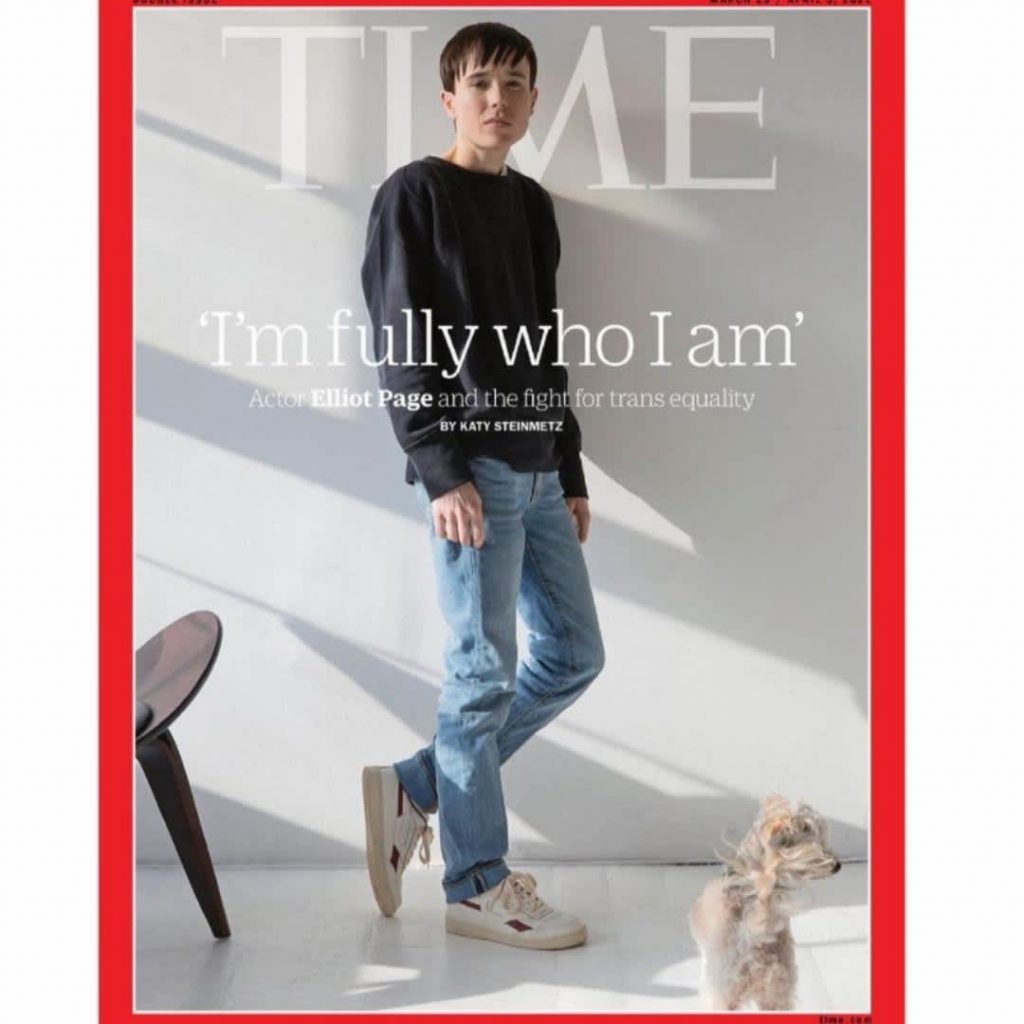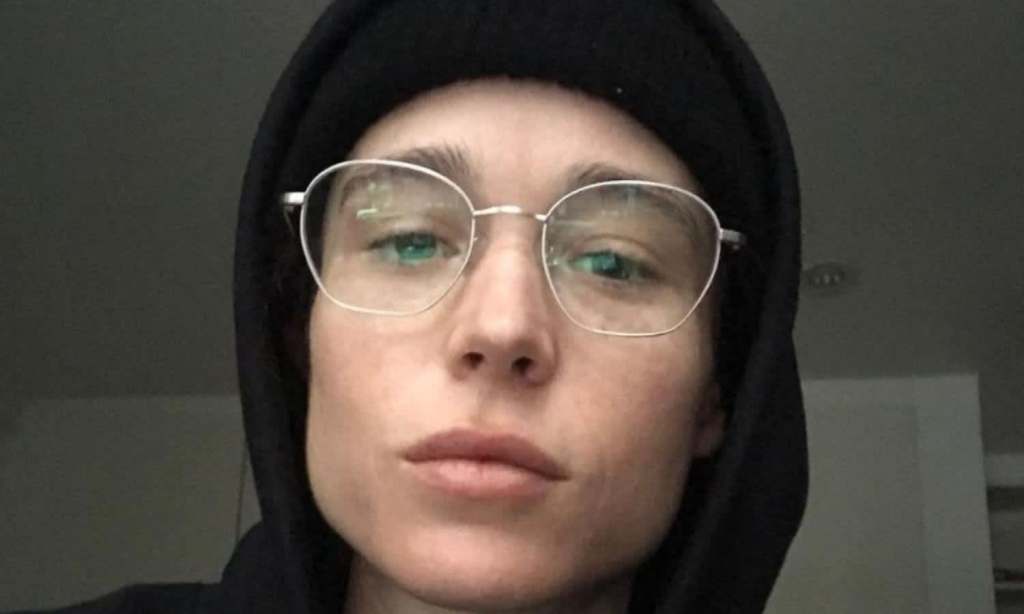Actor Elliot Page made headlines in December 2020 when he came out as transgender, with The Umbrella Academy star pledging to do whatever he could to make society more loving and equal.
Now, in a cover interview for Time Magazine published on March 16, Page has explained that he felt a moral imperative to come out as trans, especially given the obstacles, discrimination and violence faced by the trans community both historically and today.
“Extremely influential people are spreading these myths and damaging rhetoric — every day you’re seeing our existence debated,” Page said. “Transgender people are so very real.”
His Career Impacted His Ability to Live Truthfully
In the impactful interview, which took place over two conversations, Page described how becoming an actor at the age of ten halted his ability to live his truth as the roles he landed required him to “look a certain way.”
Page explained that he had wanted to be a boy from a young age saying, “I would ask my mum if I could be someday.”
After the success of Juno, which brought Page an Oscar, BAFTA and Golden Globe nomination, the actor struggled with the visibility and expectation that came with such recognition. “I just never recognised myself. For a long time I could not even look at a photo of myself,” Page said, revealing that it was also difficult to watch the films, especially ones in which he played more feminine roles.
Hiding Who He Was Taxing On His Mental Health
Page explained that the stress of having to live in a way that was not authentic to who he was eventually led to depression, anxiety and panic attacks. The actor said he didn’t know “how to explain to people that even though [I was] an actor, just putting on a T-shirt cut for a woman would make me so unwell.”
Despite feeling for years that coming out as gay was impossible given his career, Page did just that in 2014, sharing his thoughts at a Human Rights Campaign conference on the “crushing standards” the entertainment industry placed on both actors and audiences.
The actor explained that while he felt better in some ways having come out, he still did not feel that he was able to be 100% himself. “The difference in how I felt before coming out as gay to after was massive,” Page said. “But did the discomfort in my body ever go away? No, no, no, no.”
The Pandemic Helped Him Arrive at His Decision to Come Out as Trans
“I had a lot of time on my own to really focus on things that I think, in so many ways, unconsciously, I was avoiding,” Page said of the isolation brought on by the COVID-19 pandemic.
Inspired by people like Janet Mock and Laverne Cox, and trans writers such as P. Carl, Page said that “shame and discomfort” gave way to revelation. “I was finally able to embrace being transgender,” Page said, “and letting myself fully become who I am.”

He Wants People to Recognise That Being Trans Is Not Just About Surgery
While Page has undergone top surgery, he wants people to realise that it is not necessary or affordable for everyone. The actor said that for him, surgery was both “not only life-changing but lifesaving.”
For the actor, one of his great hopes in living in his truth is that other people will educate themselves about trans lives and to learn how imperative access medical care is for the community. Further supporting his desire is the grim fact that an estimated 41% of transgender people have attempted suicide, with denial of health care resources being cited as of the contributing factors.
He Is Determined to Use His Privilege for Good
Page recognises that he is in a unique position to advocate for the rights of the trans community, given that he is white, wealthy and famous, saying, “My privilege has allowed me to have resources to get through and to be where I am today and of course I want to use that privilege and platform to help in the ways I can.”
His efforts are desperately needed, especially when it comes to transgender people of colour who endure unemployment, violence, police harassment and are denied access to medical care at disproportionate rates to their white counterparts.
He Is Excited about the Future
For Page, his activism will be carried out in tandem with his acting career, as more diverse roles have been coming his way. Since opening up about being transgender in December, Page no longer has to subscribe to the Hollywood archetype previously placed upon him and studios are eager to have him appear in their projects as his true self.
“I’m really excited to act, now that I’m fully who I am, in this body,” Page said. “No matter the challenges and difficult moments of this, nothing amounts to getting to feel how I feel now.”
If you or someone you know is in need of information on the transgender community, Trans Pride Australia creates a safe and supportive space to “connect with other TGD people and family, friends and allies in a closed online environment.”
Read more stories from The Latch and subscribe to our email newsletter.







